Wheel Manufacturing Enduro Pf30 to Shimano Bottom Bracket Review
The bottom bracket is an unseen but crucial component that sits at the heart of your frame.
The best MTB bottom brackets enable your cranks to spin on a secure and balanced begetting interface. As with whatever rotational component on a mountain bike (chainrings, hubs, cassettes), the bottom bracket works hard for a living and can be exposed to trail contaminants equally well equally high load forces from heavy landings.
Bottom bracket blueprint is a compromise between ecology sealing, low friction bearing integration and frame-specific packaging. You can have the best MTB groupset around simply if your cranks aren't spinning smoothly yous won't be going anywhere quickly.
Skip to what you lot need to know about the best MTB lesser brackets
- Best trail bikes
- All-time enduro bikes
- All-time e-MTBs
All-time MTB lesser brackets
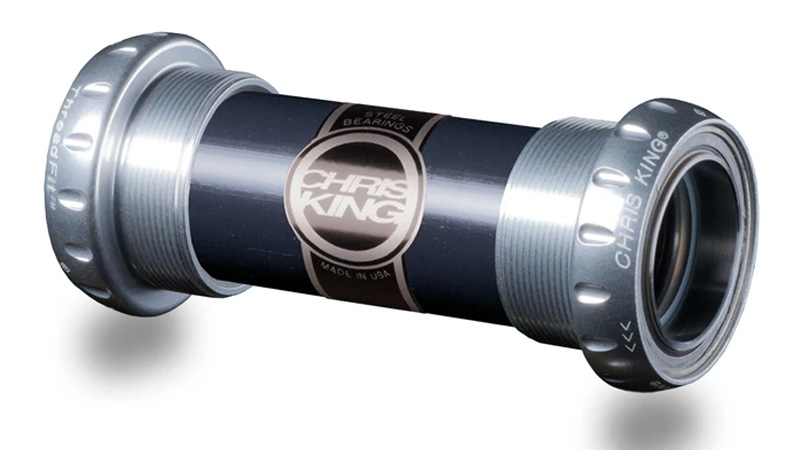
If you desire a cycling component that lasts most forever, the well-nigh trusted name is Chris King. The former frame architect has been a pioneer in producing some of the very best hubs and headsets imaginable since 1976. Chris Rex's lesser brackets are of the same caliber.
Although they aren't cheap, the cost of your investment can be amortized over a very long fourth dimension, as these bottom brackets tend to outlive most frames they are built into.
The secret of Chris King's depression friction performance and impressive durability are exceptionally tight tolerances, due to the labor-intensive manufacturing process involved with its lesser brackets. This means that the bottom bracket will fit precisely between your frame and crank arms, leading to a more than efficient ride.
Unlike many rivals, Chris King fabricates its own bearings and packages the cartridges in-firm, at its Portland factory, to ensure unsurpassed quality.
At that place are 9 color options available, and all bottom brackets are backed past the brand'due south Rex Lifetime Warranty. This bottom bracket is available with ceramic bearings, too, but that option is twice the price every bit the standard stainless steel.
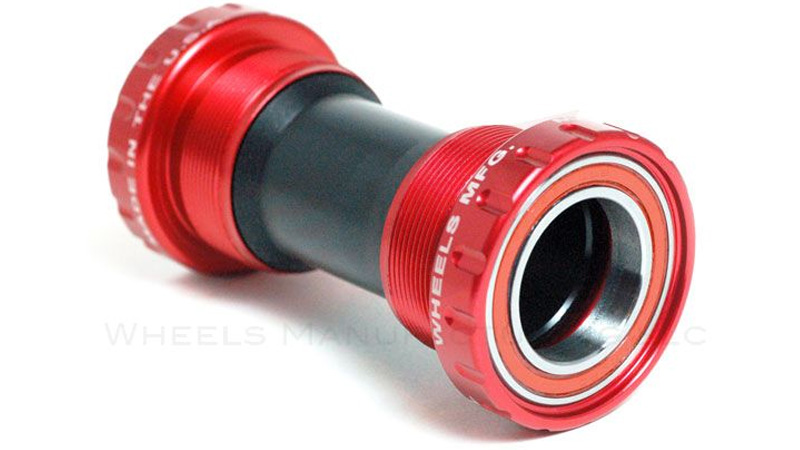
If you are the kind of passenger who does not avoid mud or hundreds of miles cranking along in choking grit, this is the lesser bracket for you.
Differentiating the Wheels Manufacturing bottom brackets from most others are their bearings, which are all Enduro standard. Environmental sealing is exceptional likewise, with Enduro silicone dust seals to protect your bottom subclass's moving bits from contaminant ingress.
The use of angular contact bearings also decreases load wear and Wheels Manufacturing goes to substantial lengths to shape them as perfectly as possible. The private bearings are fabricated from military-form chromium steel and shaped to a roundness standard of v/one,000,000″.
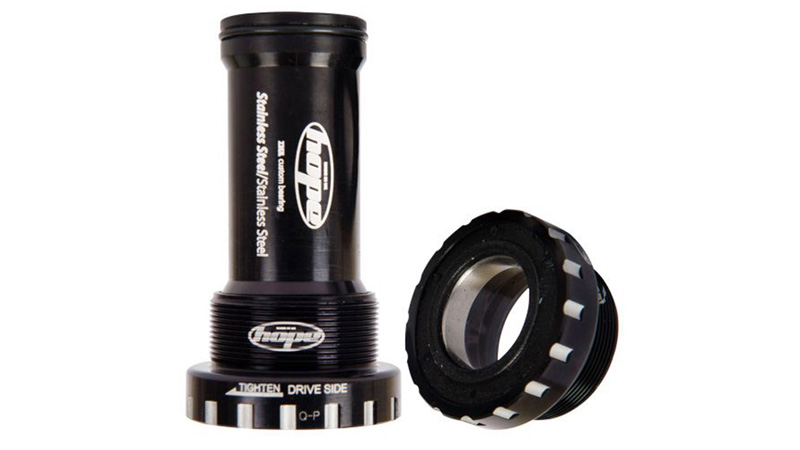
The British make'southward bottom brackets have a deserved reputation for foul weather riding durability.
With Hope's blueprint, prototyping and manufacturing all being proudly located in Barnoldswick, muddy English riding weather have shaped engineering priorities with all of the company'southward components.
The stainless steel bearings are specific to Hope's exact specifications and they are double sealed. A not-contact labyrinth seal protects the bearings externally, whilst internal sealing is provided by O-rings.
Beyond this comprehensive double seal construction, Hope's bottom brackets as well take direct contact with the crankset'south axle, which negates the presence of shims or spacers, further reducing complexity and potential maintenance issues.
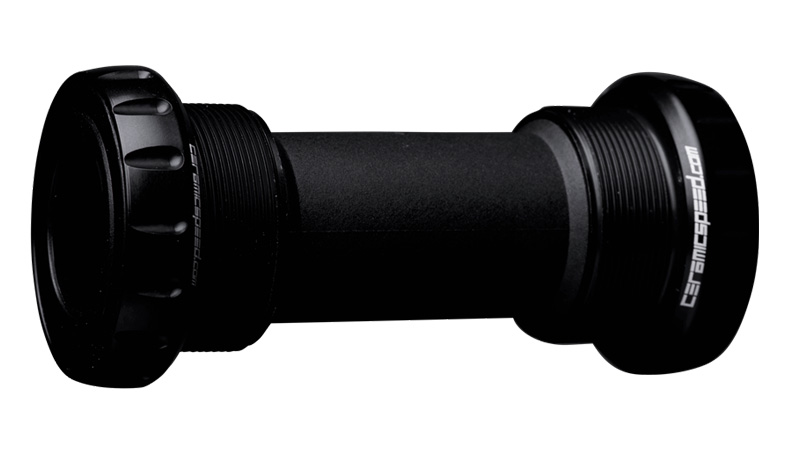
If you desire to sacrifice the to the lowest degree wastage of energy and become the nigh mileage out of your lesser bracket, CeramicSpeed has what you demand.
Past using ceramic bearings and custom steel races, the Danish brand claims to reduce drag by 50 pct compared to a conventional lesser bracket design. Less drag means more than efficient power transfer and a greater gain of functioning per pedal stroke.
The efficiency gains are just part of CeramicSpeed's product appeal. Ceramic bearings also manage to exist sixty percent longer lasting, although they are certainly not cheaper than steel. A meaning investment is required to purchase into CeramicSpeed'south design, just they can be found at a discount online. If you compound the efficiency gains and longevity, this is the bottom bracket to have for mount bikers who are going to be tallying huge cantankerous country and climbing mileages.
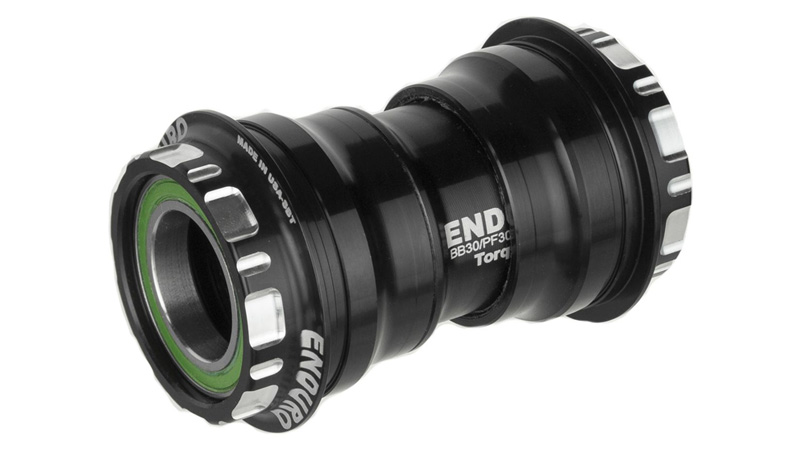
We've mentioned the do good of running superior bearings in your bottom bracket, and nigh of those upgrade kits are supplied by Enduro. Since 1996, this company has been the supplier of option for many mountain bikers. Equally such, you lot'd expect them to build a pretty decent bottom subclass of their own and the TorqTite is exactly that.
This cleverly engineered bottom bracket combines the creak-complimentary fit of a threaded bottom bracket and makes that attribute applicative to frames with a printing-fit lesser bracket beat.
Enduro makes their own bearings in Oakland, California, and claim superior tolerances due to the skill of their machinists. Their bearings are besides fabricated from nitrogen-infused steel which has ameliorate longevity than stainless. With a TorqTite lesser subclass, you can accept a creak-gratis fit in a press-fit frame.
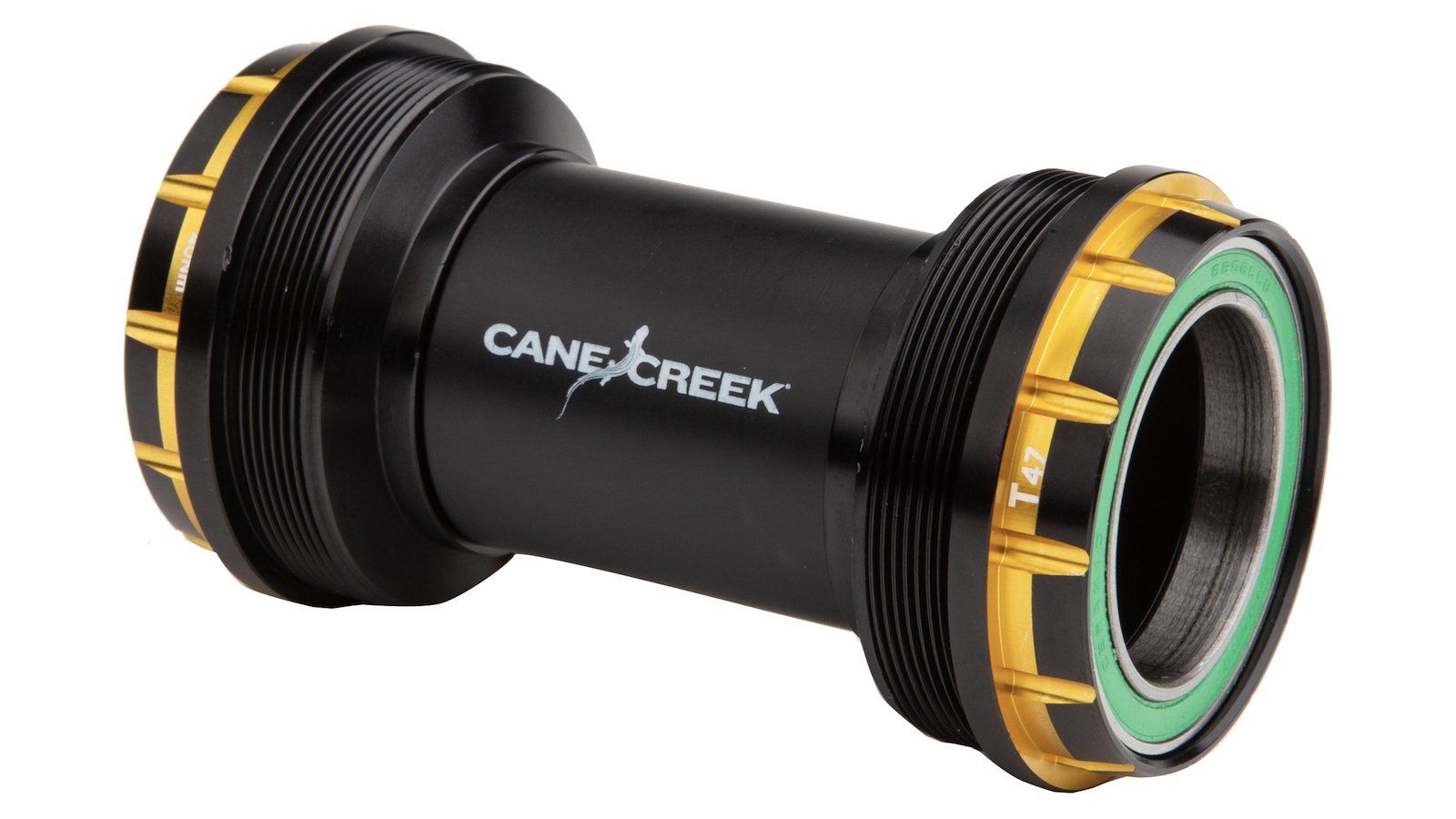
Pikestaff Creek'due south Hellbender 110 lesser subclass is manufactured at the brand's facility in Noth Carolina. It uses Enduro'southward ceramic XD-15 bearings, which use nitrogen-infused stainless steel races and Silicone Nitride ceramic balls for a buttery shine ride that'll stand up upwards to the elements.
The Hellbender 110 is available in BSA, BB30, PF30, and T47 variants. The BSA threaded version is just 80g, while the T47 is 132g. At $299.99, this is certainly a pricey selection, simply it will be a quality product that will last a long time. Pikestaff Creek's website says that information technology's sold out, but it is in-stock on online retailers such every bit Jenson USA.
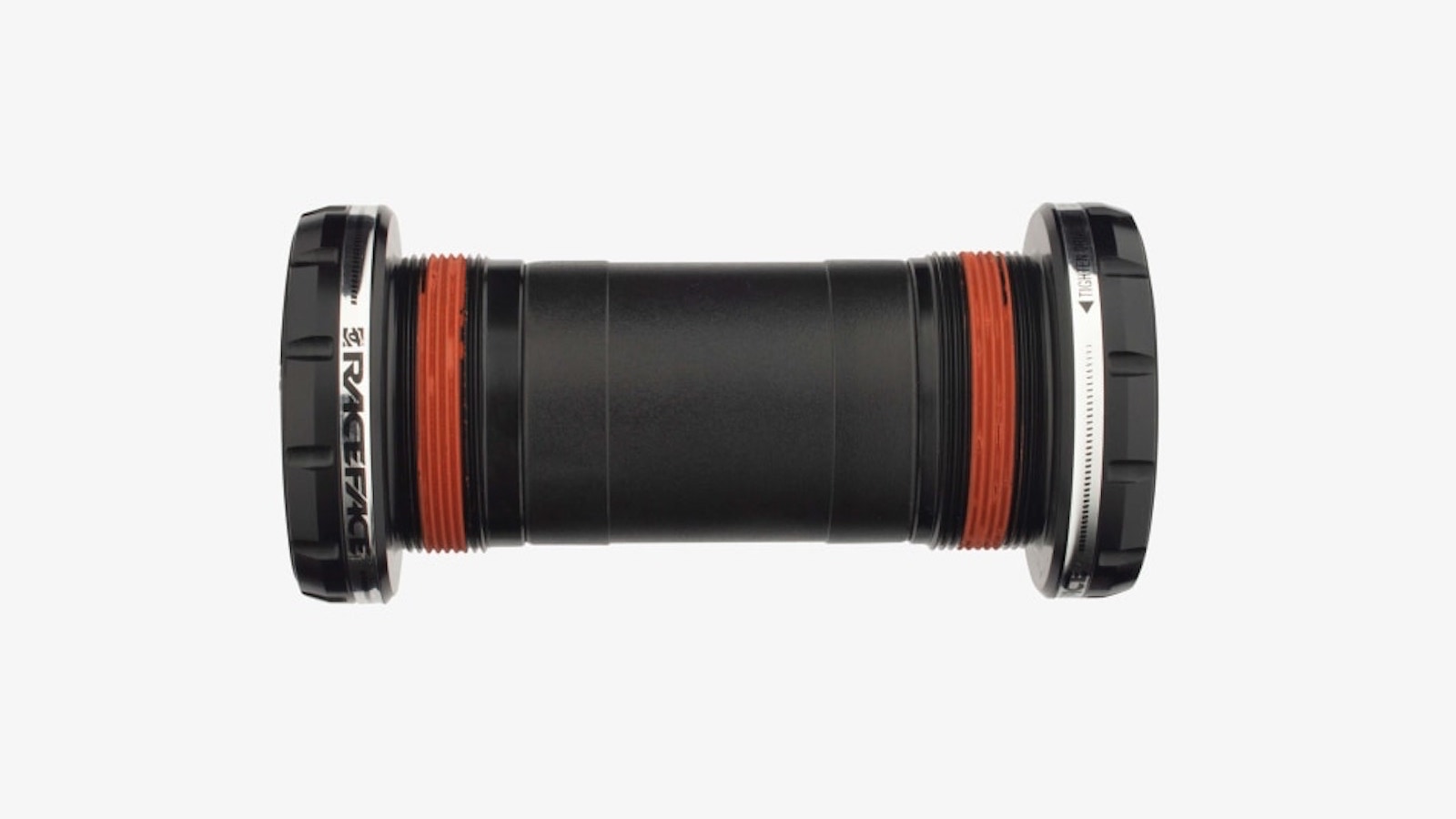
If yous're like most riders, yous won't want to spend hundreds of dollars on a fancy bottom bracket. Here are some budget-minded options that will leave money left over for upgrading your drivetrain or buying new riding kit.
To showtime, Race Face's Sure-fire line of lesser brackets are bachelor in a range of different standards and sizes. This threaded BSA version weighs 87g and costs merely a hair under $threescore.
Race Face up BBs use 6806 retainer bearings that are packed with waterproof grease and wiper seals so you tin can go along spinning along smoothly while keeping grit and mud on the outside of your wheel instead of on the within.
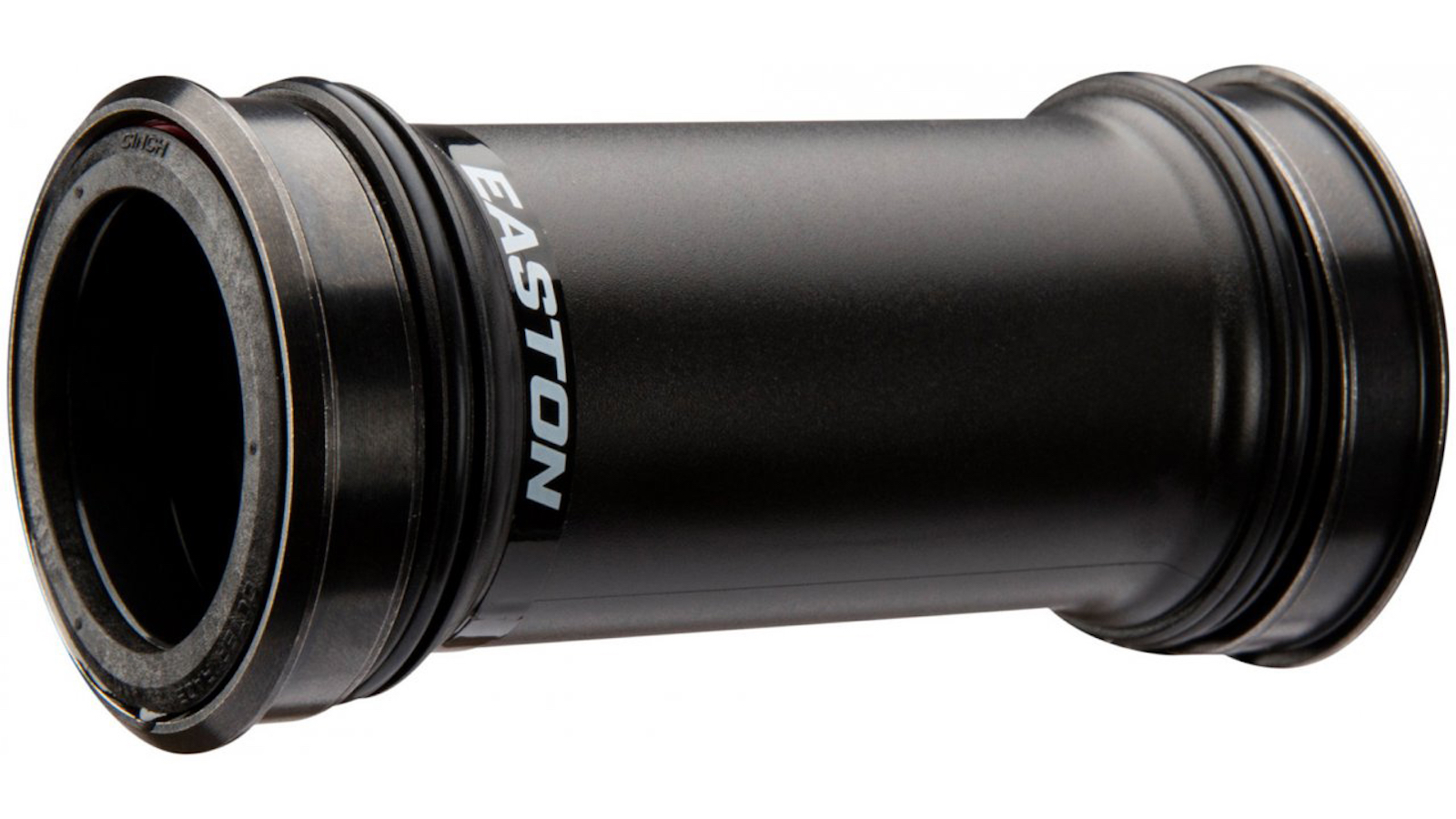
For Easton'due south new 386 Evo bottom bracket, the brand subjected it to a 24-hour h2o invasion test. The test proved that the bottom bracket can perform well even in the worst wet atmospheric condition weather.
The company likewise re-thought the grease it uses to pack the BB's stainless steel bearings. Easton plant that using a thinner grease practical at the correct level is more durable than using a thicker grease. This offers amend operation and protection when spinning at speed.
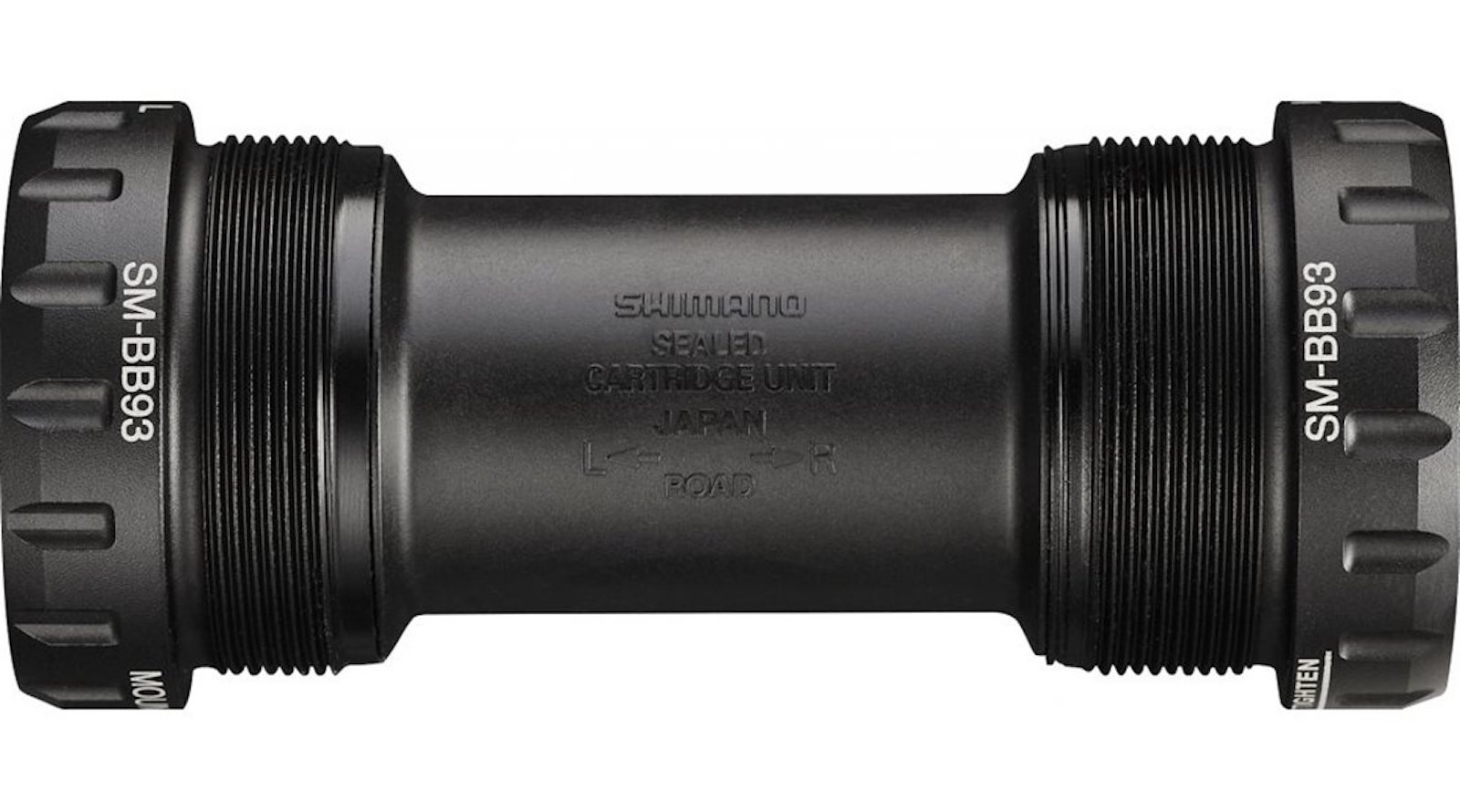
Shimano'south XTR groupset is one of the best MTB groupos available, so the XTR bottom bracket volition provide similar quality and reliability. This BB uses the threaded, English language standard. At 89g, the brand claims that the newest XTR BB is 19 grams lighter than the previous version. This ways that riders are dealing with less rotational weight, and Shimano says that the seals have been improved on too, then clay and mud stay out. Another do good of buying Shimano is it should be widely available at bike shops in instance you demand to purchase a new 1 or need service done to it.
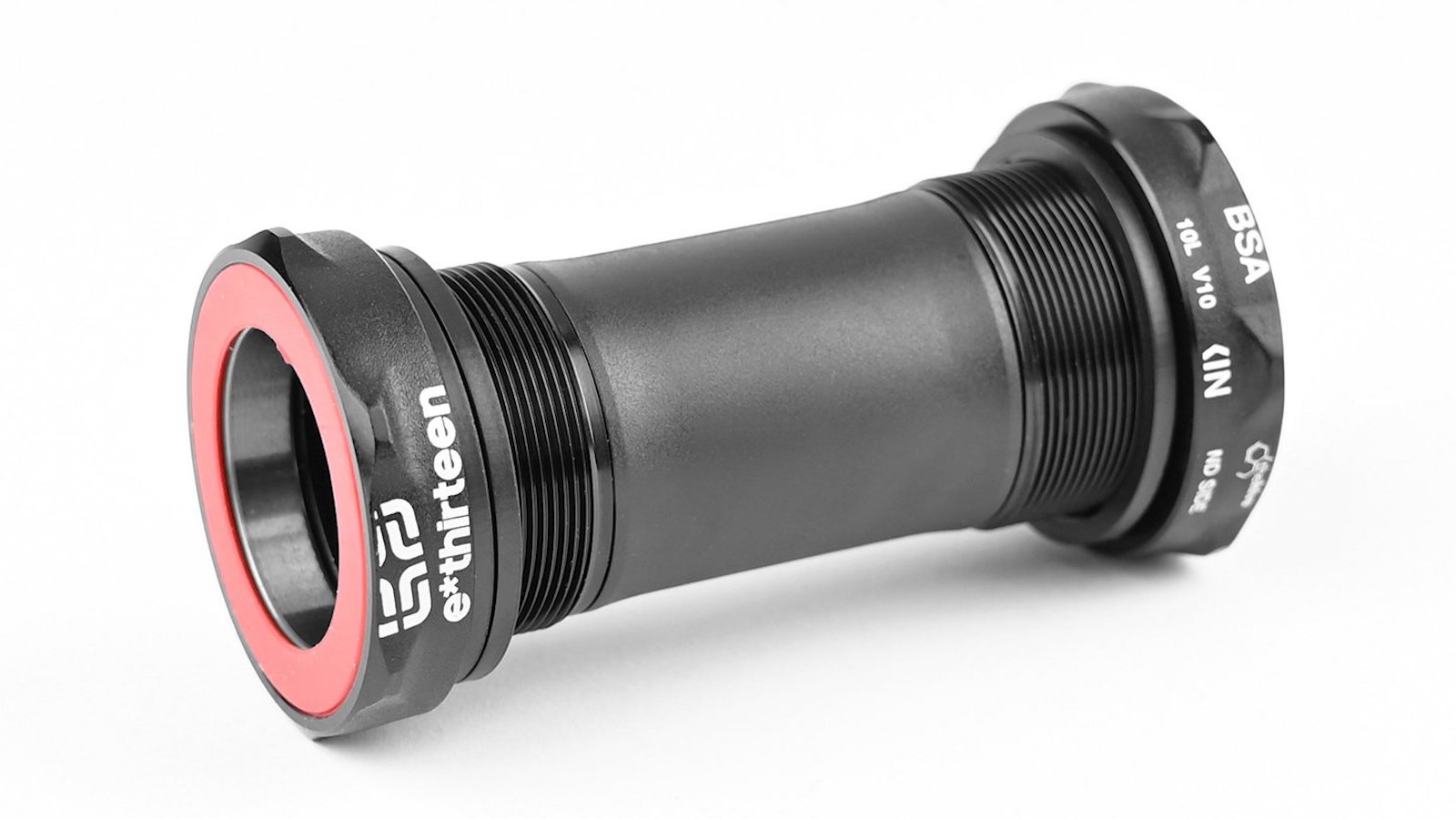
E*Thirteen'south threaded bottom brackets offer fantabulous compatability across a variety of bike types for a budget price. It volition work with BSA or T47 type BB shells and uses custom bearings combined with loftier performance seals. This BB is available for cranks with 30mm or 24mm spindles and for frames with 68mm, 73mm, 83mm and 100mm threaded BB shells. There is also an option to buy a BB for route/gravel frames with 68mm BSA shells.
What to know about the all-time MTB bottom brackets
Rotational components also accept a more than crucial mass profile for mountain bikers, due to the additional energy required to keep them turning over. Grams saved on any rotational component yields a generous energy saving.
On a bottom bracket itself, the actual rotation mass is not actually an issue, it is a bearing organization, so the most important consideration is friction. A bottom subclass that manages to be both stiff in its structure and reduce resistance when spinning, is the platonic.
Reconciling these two concepts can be problematic. Engineers are challenged by producing a bottom subclass that is robustly sealed and has large enough bearings to remainder rider weight when continuing on the pedals.
The solution would naturally exist to use the biggest possible bearings, allowing for excellent weight load distribution, but there are limitations in terms of the frame blueprint. A lesser bracket shell can but exist so big earlier it starts to disrupt the tube contour and geometry of whatever mountain bike. Crank arm spacing is also an issue.
1. Threaded
In that location are an exhaustive assortment of mount bike lesser bracket standards and specifications. Mayhap the most elementary – and of import – classification is whether your mount bike frame runs a press fit or threaded lesser bracket.
As the name suggests, threaded bottom brackets literally accept threads that screw into matching threads in the BB beat out. On the other hand, press-fit Bulletin board system are "pressed" into the BB shell.
Threaded bottom brackets are the more traditional and robust configuration, ideally suited to mountain bikes and retain a legion of supporters who value durability.
ii. Press-fit
The press-fit lesser bracket is easier to industry, as it can be auto pressed and offers frame designers the ability to meet lightweight specification requirements. For riders who want a narrow q-gene (lateral crank arm spacing), press-fit lesser brackets make a difference.
Unlike a threaded bottom subclass, there is no requirement for an aluminum insert to secure the press-fit system. Therefore, a printing-fit bottom bracket frame can exist lighter than 1 of the same dimensions and tubing profile, with a threaded bottom bracket – which requires an aluminum insert.
It should exist noted that the weight difference is marginal and comes with a probable irritation coefficient, every bit press lesser brackets are prone to creaking. This is acquired by environmental contaminant ingress, and the badgerer of play developing over fourth dimension, every bit the bottom subclass is not screwed into a securing thread. The press-fit bottom bracket works a treat on carbon route bikes, but for the more challenging contaminant surroundings frequented by mount bikers, it has its detractors.
iii. Crankset compatibility
Beyond frame compatibilities, you lot will as well need to consider compatibility with your crankset as different brands use different axle standards. The most mutual ones are from the ii big drivetrain players, Shimano and SRAM. Shimano uses a 24mm axle whereas SRAM has two standards, the stepped 24/22mm GXP and the newer 29mm DUB axle. In that location is as well a 30mm BB30 (threaded) or PF30 (press-fit) standard which many manufacturers too use. There are others so information technology'southward worth double-checking the compatibility of a lesser bracket with your crankset manufacturer before purchasing.
4. Bearings
Beyond your choice of configuration – either threaded or press-fit – the near of import lesser bracket specification feature should exist bearings. Remember that the bottom bracket is effectively conveying your full weight when y'all stand on the pedals.
If you are descending a technical trail in the attack position or pedaling out of the seat on a steep climb, all your weight is resting on the bottom subclass'south moving parts.
Any bearing habiliment will exist exacerbated by your standing weight on the pedals, so running the closest manufacturing tolerances and best material bearings is crucial. Bottom brackets with lower functional friction are most desirable, as they save energy and prevent unnecessary fatigue.
With begetting fabric, you take steel or ceramic as your choices. Ceramic bearings are more expensive but offering numerous advantages over steel.
The ceramic fabric can be shaped to a better manufacturing tolerance, which lowers friction by creating the most spherical possible shape. This allows a bearing to seat in a cartridge with narrower tolerances and less friction. All those factors combine to reduce the overall free energy you require to plough the crankset through a lesser bracket.
Ceramic bottom subclass bearings are also less susceptible to structural flex, under load than steel. This means that the bearings will retain their shape, even if yous are cranking at maximum ability up a climb, and therefore provide near-perfect free energy transfer when you need it well-nigh – instead of friction build-upwardly.
Nearly bottom bracket bearings are steel, simply even here, there is a distinction in the market betwixt stainless and standard steel bearings. Yous could have a quality steel source cloth but machining it to the perfectly circular shape is what makes for a groovy bearing – and this requires engineering discipline.
Certain bottom subclass manufacturers prefer to machine their own bearings, for optimal quality control. This also gives them the power to produce bearings that are perfectly aligned with their overall bottom bracket design specifications.
Source: https://www.bikeperfect.com/features/the-best-mtb-bottom-brackets
0 Response to "Wheel Manufacturing Enduro Pf30 to Shimano Bottom Bracket Review"
Post a Comment